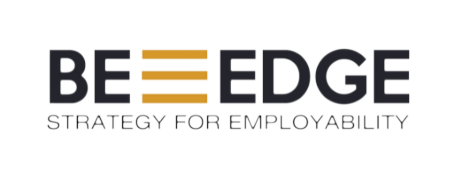
Aligning your Career with your Passions
by Landon Mukaigawa
October 6, 2024
You attend high school, then you have a college degree. Then, after grinding out those long hours of studying in the library, it’s time to start working in the real world. It’s simple right? Well, not quite. According to a study done by the Federal Reserve Bank of New York, it’s surprising to find that only 27% of college graduates work in a field related to their major.
Often, our first job might not be what we would have hoped it would be, and we struggle with coming to terms that this is what our life has become. If you are feeling stuck, you aren’t alone! Many others are going through the same process. Failure is a necessity towards growth and learning.
We go into college with an idea of what we want to do, but is it actually what we want to do in the future? There’s no telling how it will play out and a multitude of factors constitute what you will enjoy about the job. A Harvard Business Review article listed the 3 reasons why it is so hard to follow your passion:
Passion is Developed
Passion is not something that someone finds, rather it is developed over time. We often think that passion happens upon a profound discovery, but that’s not how it works. Passion changes with time; it is cultivated through the multitude of experiences we have throughout life. Just like skills, it takes time to develop passions. Research shows that believing passion is “fixed” can restrict people from exploring new topics. Do everything! Try everything! You might discover a new profound passion!
Care vs. Enjoy
We give the misconception that passion is something that we enjoy. Instead, passion is focused on what we care about to align our values with our interests to create the largest impact. In a study of several hundred employees, people who believed that following one’s passion meant doing things that bring the most joy were less likely to become successful in their pursuit of passion, leading them to quit their job. The care for work brings a combination of passion and perseverance creating a higher resilience towards sticking to goals despite adversity. The pursuit of passion is an ongoing challenging process. What do you care about the most?
Set goals
Once you figure out what you want to do, create short-term and long-term goals to help your realities come true. Majority of people don’t have goals to track their progress towards fulfilling their passions. It won’t happen overnight. You wouldn’t drive in the dark without your headlights on, that’s dangerous. To stay on track, make sure you fulfill your goals and put timelines on them. Here are also some other questions to consider: How are you going to turn your passion into a profession? What will you do if your plan fails? A business canvas, SWOT analysis, PESTEL analysis, and Porter’s 5 forces are great tools to analyze yourself and your potential business targets towards passion.
——————
(Here is my personal story of how I was able to align my passions with a career path.)
Developed Passion:
Thousands of miles away from Boston, I grew up in a small town in Hawaii, where the land is abundant with tropical life ranging from seasonal fruits to fresh local seafood. For decades, my family has made their living off the resources the ocean provides. I grew up as the son of a fisherman, and I became a commercial fisherman myself. I began to master the trade, absorbing knowledge from the proper safety regulations of seafood to studying the anatomy of the animal itself to tracking the patterns of migration throughout the Pacific Ocean. At a young age, I was fortunate to travel the world, understanding the demand for fresh and high-quality goods. At the same time, I realized the destruction of the natural resources around us. The more we produce, we also accumulate waste at the same rate. There seems to be no sign of slowing down.
Care vs. Enjoy:
Throughout my experiences, I have developed a passion for environmental sustainability, marine conservation, and health concerns within food. Did you know that over 65% of tuna is discarded through processing? That’s almost two-thirds of a fish wasted! As the world consumes more tuna on an annual basis, the world’s tuna population declines. I’ve thought for many hours about how I could alleviate the issues of waste within the seafood industry. I want to change and revolutionize the way we think about waste in our environment.
In searching for a solution to seafood biowaste, I also stumbled upon the problem of pet malnutrition. More than ever pet owners have been expressing increasing concern over the health of their pets. Conscious efforts are made towards purchases of products with healthier ingredients to prevent illness and increase longevity. On the other hand, Wild Hawaiian tuna is one of the most nutrient-dense proteins on the planet, but much of the fish isn’t utilized to the fullest.
This spring, I found a way to address the multiple concerns expressed by the seafood industry and pet owners by creating tasty and nutritious pet treats made from fresh tuna byproducts. There are incredible health benefits of omega-3 fatty acids, vitamins, and minerals like B6, B12, phosphorus, and selenium. So far, there has been over a 95 percent satisfaction rating from pet owners, expressing how much their pets enjoyed the treats. There currently is no pet treat quite like this one, utilizing restaurant-quality tuna with no preservatives.
Goals:
So far, I have been getting positive feedback from potential customers. Not only do dogs and cats like the product, but the pickiest pets also seem to love it the most! After months of researching competitors and using analysis tools like Porter’s 5 forces, I have found niche markets to integrate my product into to gain the most customer traction. I currently have access to a production facility that is capable to produce $2,000 worth of products a day with easy access to a supplier. Utilizing my business background, I was able to figure out a low-cost model structure to reap the most profitability out of production. I undoubtedly have a deep passion for the care of the environment, it’s just a huge bonus that I can gain additional benefits through profits from this business. I have decided that financial goals are the indicator that I’m using to see how fast I am scaling.
- My first goal is to set up an online website to sell nationwide by the end of this summer. I have to curate packaging and logistics to sell directly to customers. My target goal is to reach $5,000 in sales in my first month of operation.
- Next, this is a heavy R&D-based business with huge growth potential. I plan to create new products as my business grows, focusing on healthy pet treats to alleviate certain health concerns, because each pet has its health concerns of allergies and dietary restrictions. I am trying to incorporate natural foods like sweet potato, ginger, and turmeric.
- After reaching $100,000 in sales within a year of operation, I plan to reach out to local retailers to expand my line of products to be sold through stores like PetCo, Chewy, and Amazon to gain a larger customer base. My goal is to work a deal with one major retailer out of the three.
- I’m hoping to reach $1 million in sales within 3 years as I scale up my production facility on Oahu. I strive to gain 10% of the Hawaii market share of pet owners.
These are my goals for this business, but it’s also important to have immediate steps of action to get each goal going. I also have a backup plan for utilizing my accounting degree as I work for a Big 4 public accounting firm as an auditor in the fall of 2022.
In conclusion, it’s never too late to follow your passions, but make sure you plan out your steps accordingly. It’s okay to be lost. It’s okay to fail. I struggled with thinking about what to do next many times over. To be honest, I still don’t have things figured out, but it helped to see things from the perspective of an analysis like a SWOT analysis in matching my strengths and opportunities to physically see on paper how I could align them with my passions. A big question that people often ponder is self-purpose: what is my purpose on this planet? Everyone has a different mission and values as a part of who they are, but it’s important to find what you care about for your passion. You don’t have to take on the world, but you will live a more meaningful life when you curate solutions to problems that are dear to your heart. This way you can gain a greater sense of purpose. My values have led me toward a path of entrepreneurship that I never imagined before, but I’m excited for the opportunities ahead. People often put pressure on going for career paths that pursue the most monetary benefit, but I truly believe that if you genuinely follow your passions in an organized manner, the money will follow. Good luck on your journey to finding your passions!
About the Author
 Landon Mukaigawa is a graduate student at Northeastern University, studying International Management. He received his undergraduate degree in Accounting and Chinese from Loyola Marymount University in LA. After he graduates, he is working for Deloitte as an audit associate striving to become a CPA, and he plans on launching his healthy pet treat company this summer.
Landon Mukaigawa is a graduate student at Northeastern University, studying International Management. He received his undergraduate degree in Accounting and Chinese from Loyola Marymount University in LA. After he graduates, he is working for Deloitte as an audit associate striving to become a CPA, and he plans on launching his healthy pet treat company this summer.
Landon Mukaigawa’s LinkedIn Profile


